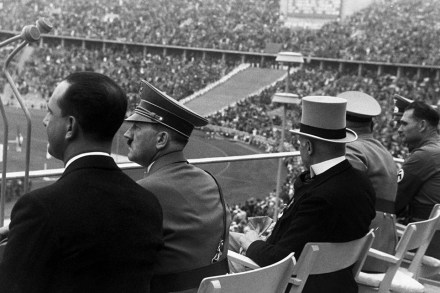Will the Olympics ever be politics-free?
The modern Olympics, first held in Athens in 1896 in a genuflection to their Grecian predecessors, was the creation of Pierre de Coubertin, a French aristocrat. As this septet of books shows from allusive angles, Coubertin’s best known quotation – ‘the most important thing in the Olympic Games is not winning but taking part’ – must rank as a paradigm example of a precept more honoured in the breach than the observance. It is rivalled only by his anticipation that the Games would be ‘a vehicle for increasing friendly understanding among nations’. In an elegant series of vignettes entitled Aux Armes! Sport and the French: An English Perspective (Fairfield Books,


